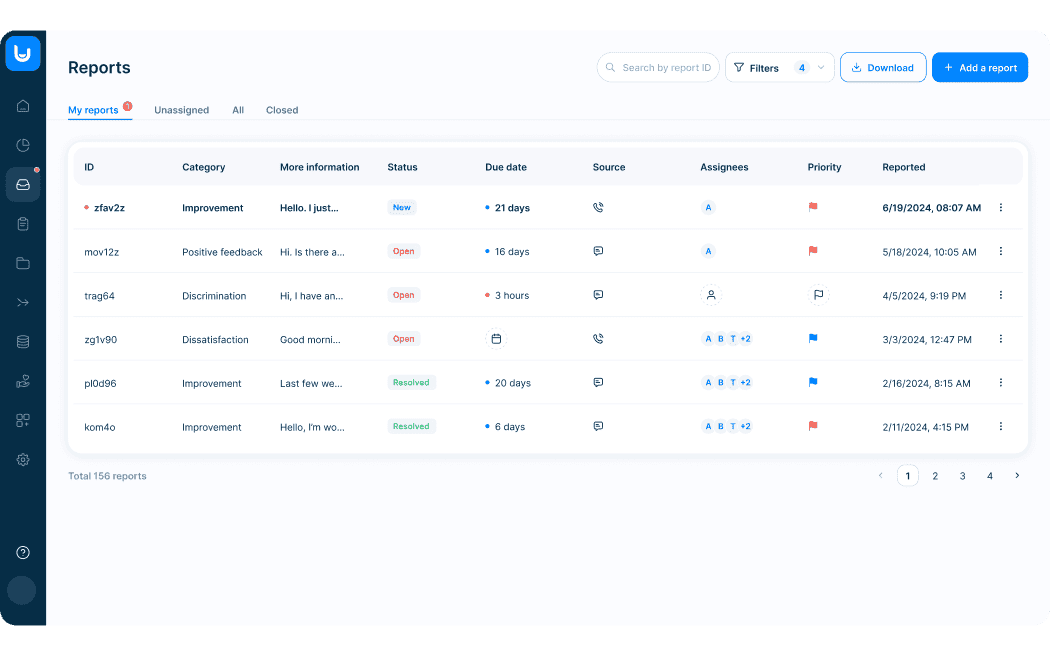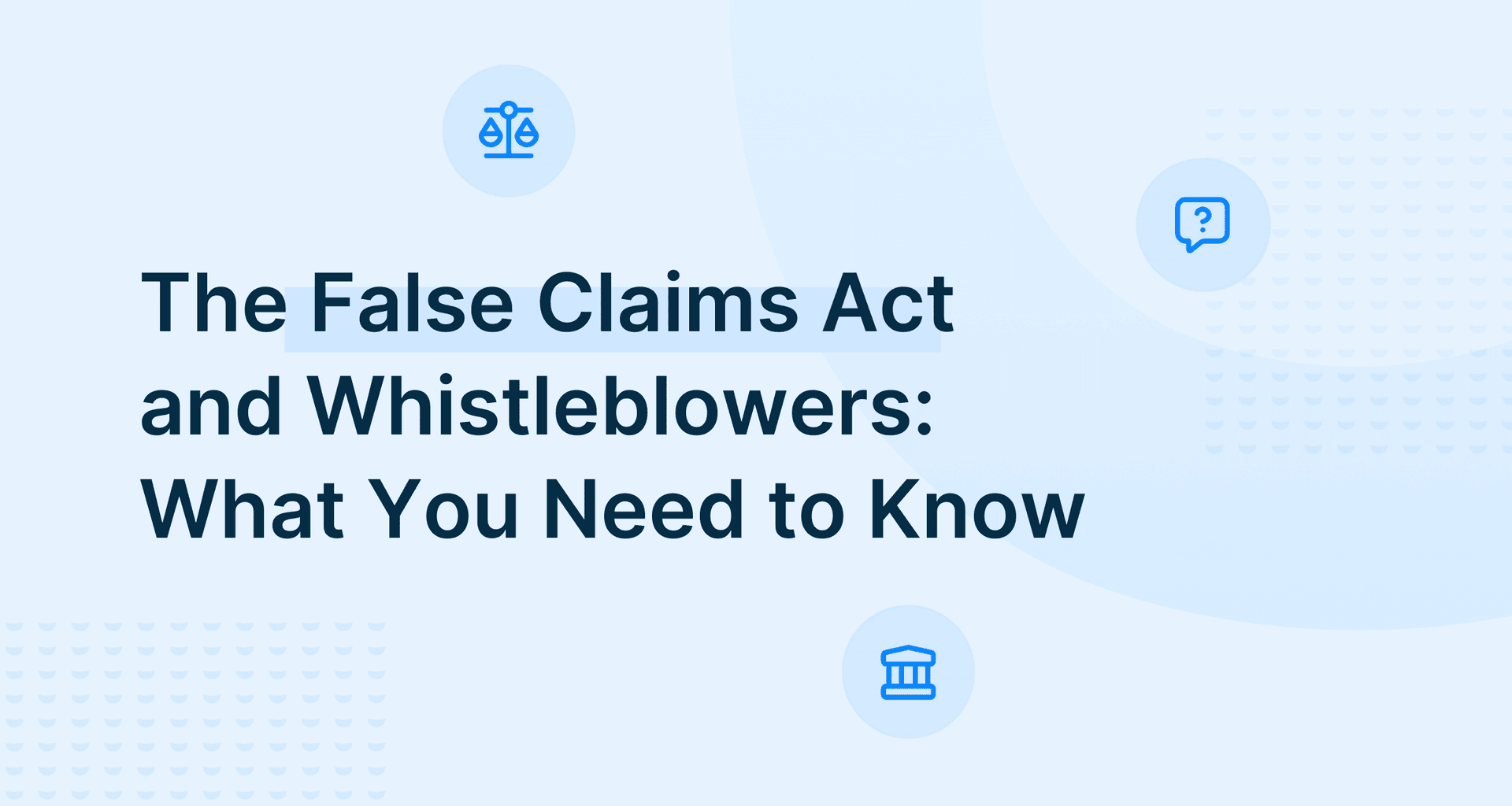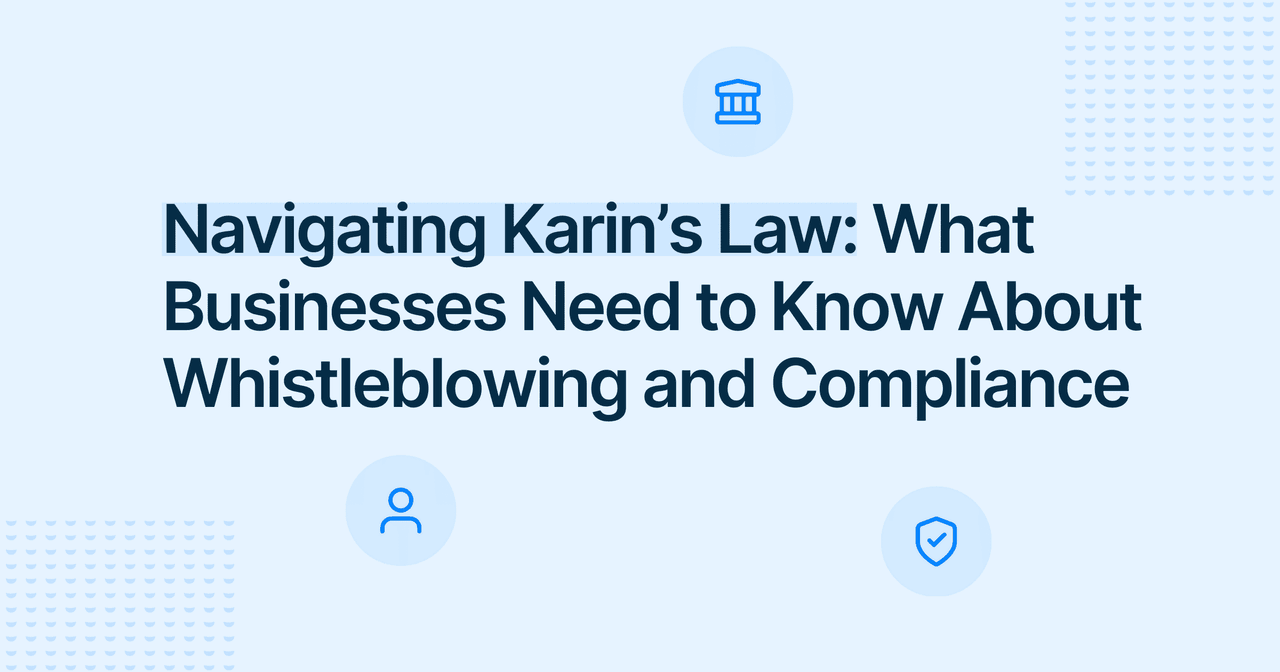



Try FaceUp Today
Set up anonymous reporting in minutes and start building a stronger, safer culture.
Legal & Compliance

Ry Hallada
Content Manager
Published
2024-10-02
Reading time
4 min


Table of contents
Subscribe to our newsletter
Have you ever wondered how fraud against the government gets exposed? In many cases, it’s thanks to courageous individuals who decide to speak up.
In fact, whistleblowers have helped recover billions of dollars in fraudulent claims. This is where the False Claims Act (FCA) comes into play. The FCA is a powerful law designed to uncover fraud, hold organizations accountable, and reward those who bring misconduct to light. Let’s take a look at how the FCA protects whistleblowers, the rewards they can receive, and the steps involved in filing a claim.
But what exactly constitutes a whistleblower false claims case?
So, what happens when someone blows the whistle on fraud?
Under the FCA, it’s illegal for employers to retaliate against employees who report fraud. False claims act whistleblower retaliation can take many forms, including firing, demoting, or harassing the whistleblower.
The whistleblower protection under the False Claims Act ensures that individuals are safeguarded against these actions. So, if you’re wondering, “Does the False Claims Act protect whistleblowers?” the answer is yes—comprehensively
Filing a whistleblower suit under the False Claims Act is a multi-step process, starting with gathering evidence.
One of the unique aspects of the FCA is the potential for whistleblowers to receive a financial reward. Under the law, whistleblowers may be entitled to a portion of the recovered funds, which can range from 15% to 30% of the total amount. These False Claims Act whistleblower awards serve as both an incentive and a recognition of the risk whistleblowers take by coming forward.
However, offering financial rewards is not without controversy. Critics argue that the disadvantages of paying whistleblowers False Claims Act may include incentivizing frivolous claims or creating a "bounty-hunting" culture.
While these concerns exist, the overwhelming evidence suggests that the benefits of whistleblower rewards far outweigh the risks. After all, the False Claims Act whistleblower provision has been instrumental in recovering billions of dollars and protecting taxpayer money.
The False Claims Act remains one of the most powerful tools in the fight against government fraud, with whistleblowers playing a crucial role. From the comprehensive False Claims Act whistleblower protection to the potential for significant financial rewards, the law provides robust incentives for individuals to come forward and speak out against fraud.
Whether you're interested in filing a claim or just want to learn more about how whistleblower suits work, understanding the False Claims Act whistleblower litigation process is key.
If you believe you've witnessed fraud, seeking legal advice is essential. And remember, tools like FaceUp offer safe, anonymous reporting options, ensuring that individuals can raise concerns without fear of retaliation. Book a demo today, and take steps to build a more transparent and safe work environment for all.




Set up anonymous reporting in minutes and start building a stronger, safer culture.
Keep Reading

Alaa El-Shaarawi2025-12-197 min
Workplace Environment

Marie Roland2025-12-165 min
Whistleblowing

Alaa El-Shaarawi2025-12-087 min
Workplace Environment